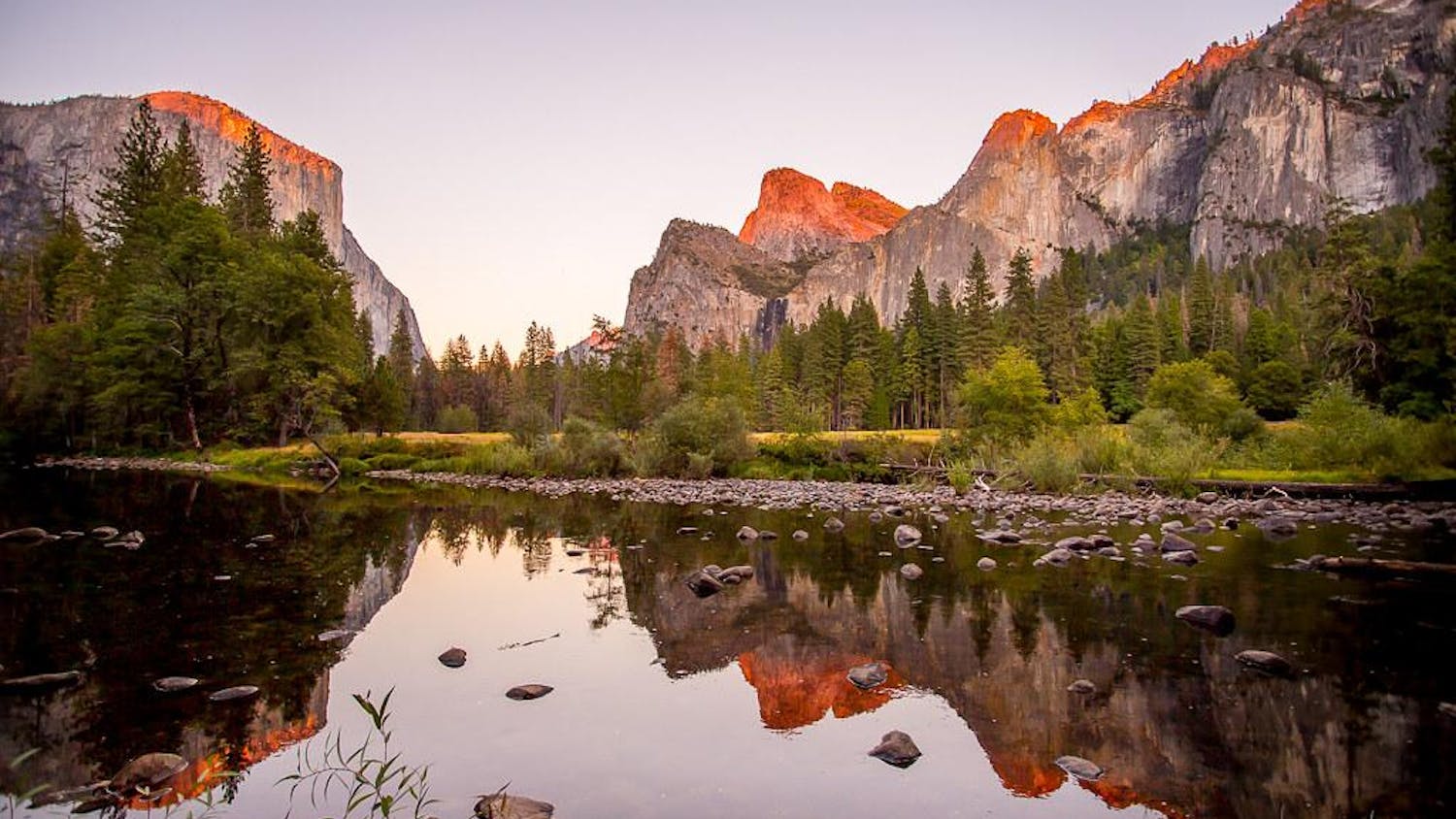Two weeks ago, members of the Tufts community joined protesters across the world to demand action on climate change.The climate strike movement is nothing new; for years, activists have demonstrated for climate action with growing numbers, intensity and rhetoric — but have failed to move the needle on any substantial change. Why?
It’s because our national climate debate is fundamentally unserious — in tone, methods and ideas. If our generation is to stand a chance against the climate threat, we need a debate grounded in intellect, not ideology, and in facts, not fear.
The climate issue has been warped by politicos of both colors to score points, as meaningful and common-sense measures fall through the cracks of partisan rancor. What’s more, they have painted a false picture that the climate debate is between a “Green New Deal” and watching the world burn. This could not be further from the truth.
Take the Green New Deal (GND), the calling card of many environmentalists and activists on the left. If implemented, the plan would cost tens of trillions of dollars, according to some analyses (for context, the current federal budget, already running historic deficits, stands at $4.4 trillion). But on closer examination, one will find that only a portion of the plan is devoted to the climate. The GND is packed to the gills with other expensive measures: a federal jobs guarantee with a family-sustaining wage, paid vacation and retirement security, healthcare, affordable housing, economic security, healthy food and high-quality education for all American citizens. As environmental activistJerry Taylor put it: “the GND is 1-part Green to 10-parts New Deal.”
What do these proposals have to do with addressing climate change? Nothing at all. Alexandria Ocasio-Cortez’s former Chief of Staff Saikat Chakrabarti, who co-wrote the resolution, openly admitted as much: “The interesting thing about the Green New Deal is it wasn’t originally a climate thing at all … we really think of it as a how-do-you-change-the-entire-economy thing.” And so months of public discourse have been consumed by an idea that will not only never be implemented, but is not even focused on solving the problem at hand. Worse, it’s poisoning our national debate.
Republican leaders are equally, if not more, to blame for their fundamental unseriousness about solving the problem. To this day, a plurality of Republican voters either do not believe in climate change, or do not believe it is a serious problem that warrants action. Or they think — looking at proposals like the Green New Deal — that climate solutions are just too costly to make sense. Despite the fact that younger Republicans largely agree with Democrats that climate change is a serious issue, the party’s old guard has largely stifled any chance of climate legislation passing.
This cynical view that many Republicans share has unfortunately consumed the party’s thinking, especially with Donald Trump as President. His view of climate change as a hoax invented by the Chinese government is another example of the anti-intellectual position that has been pervasive in the party with regard to the climate over the past two decades.Remember Senator Jim Inhofe, who, in 2015, brought a snowball to the floor of the U.S. Senate to make the point that climate change isn't occurring because it was cold outside?
We have found ourselves stuck in a situation where one side doesn’t even take the issue seriously, and the other has proposed unserious solutions to combat it. All the while, the American people (among whom there is near-consensus on the need for climate solutions) are becoming increasingly divided and the planet continues to warm.
Contrary to partisan histrionics, there is plenty of common ground to work with, and young people could be the key to breaking the standstill. This summer, I worked for Students for Carbon Dividends (S4CD), a student led advocacy organization that works to promote the carbon dividends framework; most notably, the Baker-Shultz Carbon Dividends plan advanced by the Climate Leadership Council (CLC). The framework has broad backing from the energy industry and environmental groups, as well as Democrats and Republicans alike. It’s been endorsed by 3,500 economists from around the country (including 21 from Tufts) as well as 27 Nobel Prize winning economists and every former living Federal Reserve chair.
The reason the plan has such broad support is because it harnesses the power of American markets and leverages the power of innovation to attack the climate challenge. Not only would it achieve more emissions reductions than the Paris Climate Agreement, it would do so faster,leave the vast majority of Americans financially better off and position the U.S.s as a leader in combating climate change. S4CD and the CLC work to educate young people about the climate challenge and build political support for legislation that will make a real impact. In my countless conversations with young leaders working in both Democratic and Republican circles, I’m optimistic about the prospect for bipartisan climate action.
Recent history shows that in America, radical politics are the enemy of progress. Lasting change in our country is achieved when people with very different views come together to find common ground. Issues that have been poisoned by radical polarization, like immigration, have been doomed to perpetual stalemate. We cannot let climate change join that list. Addressing the climate threat requires that both sides put aside partisan purity tests and come to the table to work together in a serious way. My generation has already displayed a willingness to come together on this issue. It’s now time for our elected officials to do the same.
More from The Tufts Daily
It’s time to get serious about trees
By
Kunal Botla
| September 19
Fund our national parks
By
Keshav Srikant
| September 17
A Harris win won’t shatter the glass ceiling
By
Gretta Goorno
| September 9





